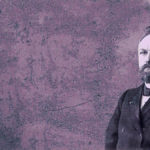It has been a prodigious decade for Dutch Reformed theologian Herman Bavinck (1854–1921). The translation of his four-volume work into English at the turn of the century sparked a surge of scholarly and pastoral interest, and new editions and translations of his works, along with new academic monographs—have rapidly multiplied. This is, of course, with good reason. Bavinck’s theological work is masterful—committed to Scripture, attentive to the church’s reflection in ages past, and aimed at the concerns of the modern world.
Often we think of theological doctrines as disembodied ideas that float outside of space and time, and that it is a straightforward thing to just “lift” them without alteration from one context to another. But Bavinck was self-conscious that his work exists in the context of a particular age and culture, and that it comes from the pen of a particular three-dimensional person with an upbringing, confessional tradition, society, education, experiences, friends, and a host of other influences.
The works of Bavinck are enjoying a new day in the sun, and now comes a highly anticipated volume that ushers the multifaceted man himself into the light: James Eglinton’s Bavinck: A Critical Biography. Eglinton, senior lecturer at the University of Edinburgh, is well-equipped to write such a book, and we corresponded about this new biography.
Why should Herman Bavinck be of interest to contemporary scholars and pastors? What is it about his life’s work that remains relevant today?
Herman Bavinck was one of the 20th century’s most outstanding Christian theologians. His writings combine rigorous engagement with Scripture (and a lifelong commitment to its authority), the history of the Christian tradition, and the biggest questions of his day. He produced works that managed to drive theology forward into the 20th century, while also remaining recognizable as a tradition stretching back across the ages. He managed to do something new with theology, but not at the cost of theology losing itself in the process. Many theologians aspire to do this, but not many relatively recent figures have accomplished it quite as well as Bavinck.
He also combined a firm commitment to his Calvinist branch of the broader Christian tradition, and a striking generosity of spirit to those outside of it. His irenicism has much to offer in our polarized times. Although some of his closest friends were like-minded Calvinists, some of his most important long-term friendships were with theologians from other traditions, or in one case, with someone who had rejected Christianity altogether: his lifelong friend Christiaan Snouck Hurgronje was a theologically liberal aristocrat who converted to Islam. Bavinck sought out and invested in his relationships with “critical friends,” and tried to avoid echo chambers. That is an increasingly rare thing in the present day. In that regard, we need more examples of people like Bavinck.
Bavinck combined a firm commitment to his Calvinist branch of the broader Christian tradition, and a striking generosity of spirit to those outside of it. His irenicism has much to offer in our polarized times.
Intellectually, his work is still useful. His Reformed Dogmatics was peerless in its day and remains a superb resource for pastors and scholars. He was theologically engaged with the intellectual and cultural developments of the early 20th century, in what was essentially a younger version of our own culture. His writings and speeches in those years deal with colonialism, geology, psychology, education, changing social roles for women, technological advancement, racism, bioethics, parenting, politics, and war. Some of his final notes mention the significance of Einstein’s theory of general relativity and the need for theologians to process that particular development. Above all, his work in those years argued that Western culture had become estranged from its Christian past, and now needed to be re-evangelized. A century on, his work is often prescient, stimulating, and worthwhile to read.
You describe the young Bavinck as having become a pastor somewhat reluctantly, before growing into the role and being sad to leave it in order to teach at a seminary. Does the story of his time as a pastor offer any encouragement to pastors today?
Bavinck was an enthusiastic participant in a theological/social movement led by Abraham Kuyper eventually called “neo-Calvinism.” For readers in other theological traditions that term itself might dissuade them from Bavinck. Could you briefly explain what “neo-Calvinism” is and why it should be of interest beyond its own narrow tradition?
In the first place, neo-Calvinism isn’t the same thing as the New Calvinism of our day. New Calvinism—the “Young, Restless, Reformed” movement—refers to a development in contemporary North American conservative evangelicalism that holds to Calvinistic (rather than Arminian) beliefs on salvation.
Despite its similar name, neo-Calvinism is a different movement. It first emerged in Dutch Reformed Christianity in the late 19th century through the leadership of the theologian and statesman Abraham Kuyper. That movement began as a Christian response to the influence of the values of the French Revolution in Dutch culture. Kuyper led a growing number of Calvinists (who originally styled themselves as the Anti-Revolutionaries) who pushed back against the French Revolution’s drive to secularize each sphere of Dutch life. These neo-Calvinists did so by articulating a Christian world- and life-view that allowed believers to live and think Christianly in all of life.
In practical terms, this meant the creation of a host of new Reformed social institutions to allow their Reformed constituency to live out their faith. Neo-Calvinism led to the Netherlands’ first modern political party (the Anti-Revolutionary Party), new Reformed newspapers, Reformed schools, Reformed student societies, Reformed workers’ unions, and a Reformed university (the Free University of Amsterdam). Undergirding all of that, the neo-Calvinists advanced new arguments around freedom of conscience. They viewed the state as existing to facilitate, rather than arbitrarily limit, the basic civic freedoms of the entire population. For the neo-Calvinists, the same freedoms were equally applicable to Dutch Catholics, and also to the emerging post-Christian segment of their society.
Bavinck’s neo-Calvinism is sometimes typecast in simplistic, negative terms as theocratic, anti-democratic, triumphalist, culture-obsessed, and so on. In reality, those stereotypes are dull and flimsy. More than anything else, his neo-Calvinism was characterized by the desire to live for the glory of God in all of life, alongside a modern commitment to liberal democratic social freedoms. You don’t have to be Dutch to care about those things.
You document a shift in Bavinck after the turn of the 20th century, from being an advocate and defender of “neo-Calvinism” to that of defending a broader Christianity in general. Will you briefly explain what (or who?) prompted this shift, and whether and how it might remain relevant for us today?
During Bavinck’s youth, the dominant liberal theological school in the Netherlands—at the University of Leiden—had argued that Christianity was now in its death throes, and had no future in a secular society. By the time Bavinck had become a young theologian, that vision was running out of steam, and new groups of theologians had begun to emerge, each with its own vision of the future of Christianity in the Netherlands. (The neo-Calvinists were one such group.) In Bavinck’s 20s and 30s, he believed neo-Calvinism would win out in that contest. It was only a matter of time, he thought, before the Dutch realized anew that their national psyche had been formed by Calvinism, and recommitted themselves to it. In those decades, it did not occur to him that Dutch culture would end up as it did.
Bavinck’s neo-Calvinism was characterized by the desire to live for the glory of God in all of life, alongside a modern commitment to liberal democratic social freedoms. You don’t have to be Dutch to care about those things.
For that reason, in that phase of life, he was known as a noted public apologist for neo-Calvinism, both at home and abroad. In 1892, for example, he traveled to North America as an emissary for neo-Calvinism among English-speaking Presbyterians. However, as he moved from his 40s into his 50s, his public apologetics began to emphasize Christianity more generally—not at the expense of Calvinism, but alongside it.
My biography traces that shift to a change in his thinking that began around 1900—the year in which German atheist philosopher Friedrich Nietzsche died. In his lifetime, Nietzsche was an obscure figure to the Dutch. From what little Bavinck wrote on him during Nietzsche’s lifetime, for example, it seems clear that Bavinck was probably only familiar with his book titles, but had not read Nietzsche in any detail. In the aftermath of his death, though, Nietzsche’s popularity grew rapidly in the Netherlands. Alongside Nietzsche’s open disdain for Jesus (on account of Jesus’s voluntary weakness and servanthood), his most novel idea was the insight that if “God is dead,” we’re under no obligation to retain any of the moral trappings of theism—for which reason, this new species of atheism had potentially drastic moral consequences
In view of Nietzsche’s sudden posthumous popularity in the Netherlands, Bavinck realized that defending neo-Calvinism alone wasn’t enough, because the Nietzscheans despised Christianity of every stripe—liberal and orthodox alike—and wanted to put an end to it all. In the biography, I describe Bavinck as having realized that Nietzsche had come to the Christian tree carrying an ax, rather than pruning shears. For Nietzsche, the whole thing, rather than just some undesirable branches, had to go. And with that, Bavinck and his theological rivals now faced the same existential threat. In that setting, Bavinck began to write and speak in defense of Christianity in general, alongside his ongoing support of neo-Calvinism. The way he balanced his support of general Christianity alongside advancing his own tradition resembles C. S. Lewis in Mere Christianity, or more recently, the kind of example we see in Tim Keller.
How is that shift relevant to us today? We still live in Nietzsche’s shadow. Western culture is relentlessly power-hungry, driven by the search for domination, despises the weak and vulnerable, and has a moral imagination that (like Nietzsche himself) identifies more with Pontius Pilate than with Jesus. We need good resources to understand and respond to this. In the last two decades of Bavinck’s life, Nietzsche was probably his most regular sparring partner. We would benefit by learning from Bavinck on this.
We still live in Nietzsche’s shadow. Western culture is relentlessly power-hungry, driven by the search for domination, despises the weak and vulnerable, and has a moral imagination that (like Nietzsche himself) identifies more with Pontius Pilate than with Jesus.
And in terms of learning wisdom for life, this shift in Bavinck’s thought is an example of how our expectations of the way things will pan out in the world can sometimes be completely wrong! Sometimes you realize your big picture isn’t right, and you need to change course. Even a great thinker like Bavinck had that experience.
You include an appendix of Bavinck’s reflections on his “Journey to America,” which is a charming window into late-19th century American life from the viewpoint of an outsider. After his second trip to America, Bavinck had some strong impressions about America’s race problems. Often we half expect 19th-century figures to hold retrograde views on race; how does Bavinck measure up to more modern attitudes?
In his years as a member of Parliament, Bavinck was a prominent critic of Dutch colonial policy. He firmly opposed the economic exploitation of the Dutch East Indies and thought that practice would have grave geopolitical consequences in the future. Despite his critical voice, though, some modern readers will probably find his approach to the Dutch colonies to be quite paternalistic. He believed that Christianity had made Western (and especially Dutch) culture great, and well worthy of global export, which he thought would benefit “less civilized” peoples. In that regard, he was a man of his era.
However, he didn’t believe that the West’s cultural progress had any foundation in ethnicity. He once told a group of white South African students—to their shock—that he would be happy to see his own descendants marrying black South Africans, as long as they were united in the same Christian faith. One of Bavinck’s South African doctoral students, Bennie Keet, went on to become an important anti-apartheid activist.
Bavinck was one of a number of European Christian leaders in that era who were troubled by American’s race problems. His contemporary Charles Spurgeon was similarly critical. Bavinck’s criticisms of racial injustice became prominent following his second trip to America in 1908 (when he traveled to Princeton to give the Stone Lectures). As part of that trip, he read W. E. B. Dubois and Booker T. Washington and seems to have been committed to learning about the African American experience by listening to African Americans. The treatment of African Americans shocked him, as did what he perceived to be a simmering hatred on both sides of that racialized divide. In lectures given to Dutch audiences afterward, he even speculated that due to its history of human enslavement, the American experiment was doomed to eventual violent failure. The only hope he saw for America was in “the path of religion.” I don’t think the racially segregated nature of the American church gave him great encouragement, though.
Previous biographies haven’t followed the Bavinck family beyond his death in 1921. Can you give us a teaser of what you discovered about his wife, daughter, and grandsons?
Bavinck’s wife, Johanna Adriana Bavinck-Schippers, was a fascinating, intelligent, and industrious person in her own right. She was an anglophile, an avid reader, and loved to travel. In Herman’s later years, during World War I, his thought became focused on the changing role of women in society. In those years, he played an important role in the campaign for women’s education, employment, and equal voting rights. Johanna was a constant presence in his work in that regard and saw it as part of her task to carry this on after he died. Following his death, she co-founded and edited a journal (Christianity and the Women’s Movement) and occupied a prominent place in the Dutch Christian women’s movement—particularly in helping young women train for jobs. As a woman in that era, she was also conspicuous in her role in the promotion of Calvinism: she negotiated with publishers in the United States and Germany to have Herman’s work translated, and was the only woman on the organizing committee for the Second International Conference of Calvinists, held in Amsterdam in 1934. She died in 1942. We do not know anything about her activities in World War II.
Their only child, Johanna Geziena, known as Hannie, was married to a lawyer, Gerrit Ruys. Hannie and Gerrit, and their three sons, Herman, Hugo Floris, and Theo, lived under Nazi occupation during the war and were active members of the underground resistance movement. Gerrit secretly worked to prevent Jewish property from passing on to Nazi ownership. He and Hannie helped Jews in hiding, while their sons worked for a covert resistance newspaper. Their story is both harrowing and also heroic. Herman and Hugo Floris were arrested and then murdered by Nazis. Gerrit was sentenced to death, although he eventually ended up in a concentration camp, and later died while being taken from there to a prisoner of war camp. Hannie was also arrested, although she was later released. Theo survived in hiding, protected by other resistance members. In Nazi eyes, they were a “terrorist family.” A street in Amsterdam, Hugo Floris Ruysstraat, is now named in honor of Herman Bavinck’s grandson, on account of his heroism in the resistance movement.
Trying to tell their story, albeit briefly, was perhaps the hardest part of writing the biography. Uncovering their stories was a humbling and moving experience.
Is there enough evidence for us to believe the Gospels?
 In an age of faith deconstruction and skepticism about the Bible’s authority, it’s common to hear claims that the Gospels are unreliable propaganda. And if the Gospels are shown to be historically unreliable, the whole foundation of Christianity begins to crumble.
In an age of faith deconstruction and skepticism about the Bible’s authority, it’s common to hear claims that the Gospels are unreliable propaganda. And if the Gospels are shown to be historically unreliable, the whole foundation of Christianity begins to crumble.








































